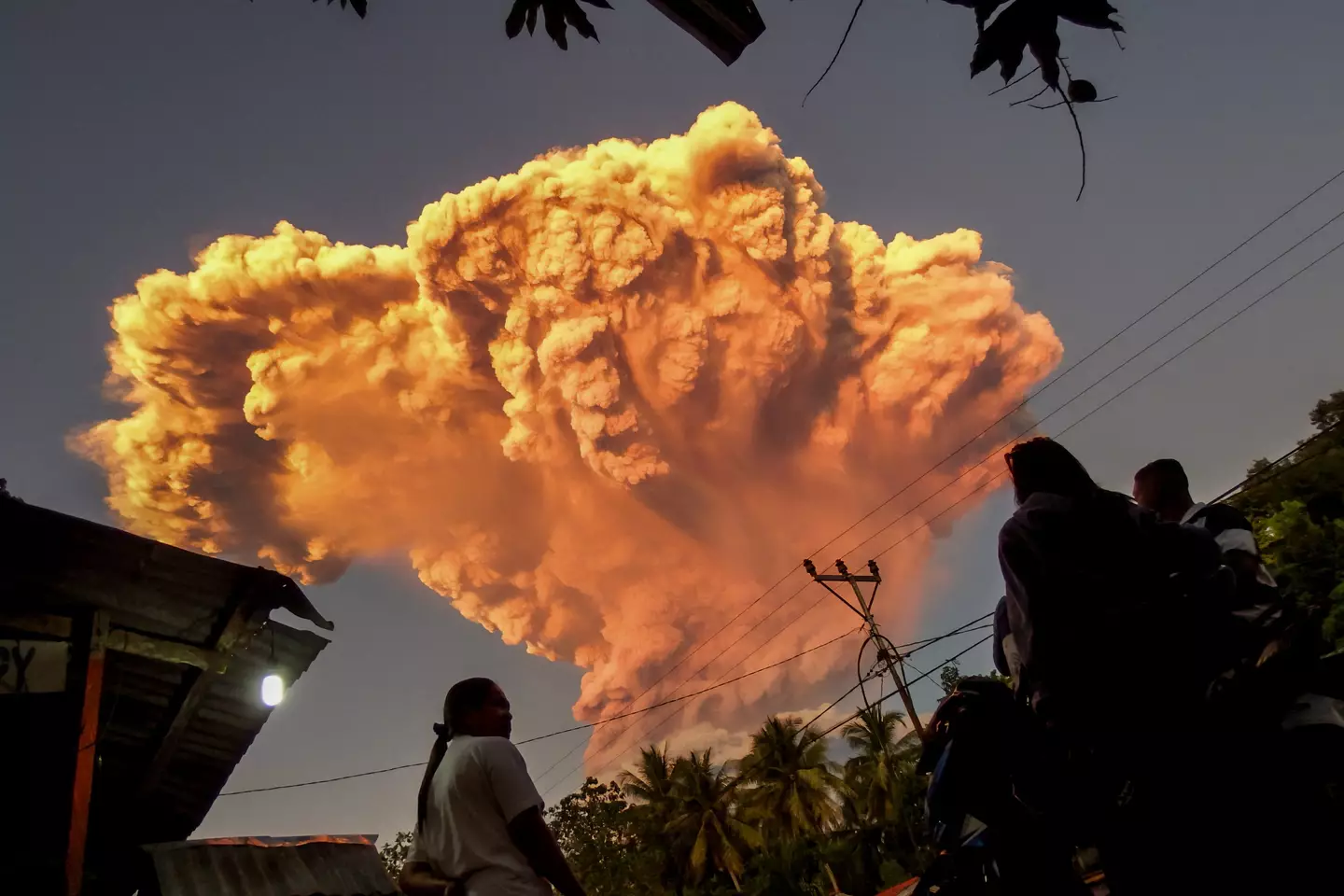
The alarm has been raised as the highest alert was issued after an Indonesian volcano has erupted a whopping 11,000 meters into the sky, spitting ash for miles.
Mount Lewotobi Laki-Laki exploded on Tuesday (June 17) with officials urging both locals and tourists to steer clear.
Authorities have now raised the status of the alert to its highest level as the 1,584-meter-tall volcano on the island of Flores experienced the eruption, warning that if there is heavy rain, this could encourage possible lava flows.
In a statement, the Geology Agency in Indonesia said: “The height of the eruption column was observed at approximately 10,000 meters above the summit. The ash column was observed to be grey with thick intensity.”
Advert
The head of the agency, Muhammad Wafid, added that anyone in the area should avoid being within 7 km (4.3 miles) of the volcano’s crater.
He also issued a warning about possible lahar floods, which are extremely dangerous volcanic mudflows.
Lahars are formed from a mixture of volcanic ash, rock fragments, and water, which often comes from rain, and then flows quickly down a volcanic slope.
Sometimes these flows can reach rapid speeds and are considered to be hazardous.
Residents are also being advised to protect themselves with a face mask if outside to avoid inhaling volcanic ash.
Since the eruption occurred, videos of the ash emitting from the volcano have been doing the rounds on social media.
Many users have taken to X, formerly Twitter, to share their reactions to the news, with one person writing: “Such an incredible yet ominous sight.”
Another said: “This ain’t an eruption, it’s a megaphone from hell.”
And a third added: “I still wonder how a destruction can produce something so beautiful & majestic at the same time. Nature has no boundaries.”
This isn’t the first time that Mount Lewotobi Laki-Laki has erupted in recent months.

Back in November, the volcano experienced multiple eruptions which caused the deaths of nine people and forced thousands more to flee their homes.
This also caused many international flights to Bali to be cancelled.
Then, in March of this year, the volcano sprung back to life, spluttering more ash clouds into the sky that were over five miles high.
The name of the volcano, Laki-Laki, originates from the word for ‘man’ in Indonesian.
This is twinned with another volcano, Perempuan, which is named after the Indonesian word for ‘woman’.